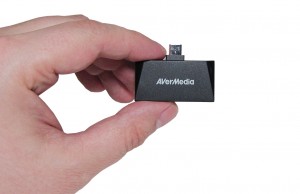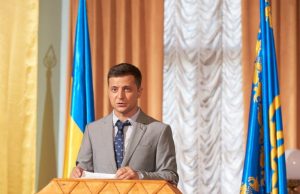Israel is a small but outstanding country, and history of its television is outstanding, too. TV in Israel appeared later than in the other countries, the channels are mostly state owned, the viewers prefer subtitles more than dubbing… There are a lot of peculiarities. Being curious about all the details Mediasat talked to the person who stood next to the cradle of Israeli TV and was one of those who created Israeli television and radio. Amos Ettinger is the producer and the host of the most long lasting Israeli TV show Haim Shekaele (“This is Your Life”), journalist, TV presenter, the author of more than 500 songs, the writer, his books (more than 20) were translated in English and Russian. Till now he writes songs, does concerts with his beautiful Ukrainian wife Elena, hosts private issues of the program “This is your life” and writes biographies He saw the birth of the state of Israel in 1948, took part in 5 wars, hosted the Israeli and world politicians and outstanding people in his show. So it is not surprising that the interview about history of television published below is only a small part of our conversation.
When did the television appear in Israel?
For a long time there was no TV in Israel. David Ben Gurion, the first Israeli Prime Minister, was against it. He said it wasn’t educational instrument. You wouldn’t read book or do your homework while watching TV. Only the next Prime Minister Levi Eshkol implemented TV in 1966.
You live on the Levi Eshkol street. Is it because of this?
May be (laughing)
In the beginning Israeli TV wasn’t based on entertainment, even those programs which supposed to be light were sophisticated. We made a lot of high quality documentaries. We started with Educational TV, most of the time it was devoted to the school lessons. The channel still exists.
Channel 1 was the next to launch. It has never been commercial, it is a state channel. People pay for it, 1/3 of income comes from customers. Doesn’t matter if you watch other channels, if you have television at home you should pay for the Channel 1.
How many radio stations were there?
Two. The Military station and the Israeli station. Now there are about 40-50 stations, each city has its own.
Were there any European or the US channels?
Nothing at the beginning, just Jordan TV station. Then Israel started to buy stations and programs and put there Hebrew subtitles, till today subtitles are more popular. Later on we got access to 60-70 channels. Nowadays Yes antenna (the only satellite TV provider in Israel – Mediasat) provides few hundreds.
Did the Channel 1 have any commercials or only state financing?
No, only sponsorship, it was mentioned for the programs “sponsored by…”. When Channel 2 appeared they started to do commercials, got money for other programs, including entertainment. Channel 1 trying to compete changed a bit. Channel 2’s margin was bigger. It took a long time for the radio to start using commercials, too.
If to talk about a state channel there is always a question if there is a censorship or propaganda. Is it?
I don’t think so. There were some fights between politicians and journalist, but not often. Sometimes politicians interfered, Ben Gurion did it to the radio.
What was the story about blocking color signal?
For a long time it was only black and white TV. The government wanted people to save money and not to spend on color TV-set. The color signal transmitting from Jordan and other countries was changed in black and white. Some people had got a kind of tricks, unblocking devices to watch color TV. Also there were obstacles from religious people, they were against broadcasting on Friday night and Saturday (shabbat – Mediasat) in the beginning of TV. One of the producers came to one of the producers came to the court with the lawyer and they succeeded to broadcast on Friday and Saturday since then.
Tell, please, about your famous TV show “This is Your Life”
Now a lot of countries buy Israeli programs. Before we were those to take some foreign formats. For more than 30 years I was doing TV show “This is your life”. It was American program, and then it appeared in England. It has existed for more than 60 years. I worked with them when they needed guests from Israel or to make program about Israel. One of the guests was Vidal Sassoon, he took part in the Independence War 1948. He served in the Palmach (the elite fighting force of the Haganah, the underground army of the Yishuv (Jewish community – Mediasat) as a volunteer.
For the first time I saw “This is your life” in England on the NBC when I was young, after High School. Eamonn Andrews hosted it. I thought: “This is a kind of things I want to do”. But there were no television in Israel in that time and actually I wanted to be an actor. I saw that program by chance and it stayed in my heart. After military service I moved to the radio in 1959 and started doing program there. It was “This your life”, by the way in the beginning they didn’t let me to do it. I went to Military station and was very happy when the first program appeared. It had a great success and became popular. Also on the radio I did documentaries, entertainment. I wrote songs and poems. They invited me to different programs to read jokes, feuilltons. I had a lot to do on the radio. After 10 years on the radio in 1969 I moved to television.
“This is your life” started in Israel in 1970. It happened the same as on the radio. They didn’t want me to do it, but soon changed their minds. If to compare it to British or American ones, here are less surprises as people know each other better, but sometimes they are. The structure was that: one story devoted to one person, three hours on the air consisted of two parts. The guests were people who had become the part of Israeli history: Chaim Weizman, Golda Meir, Yitzhak Navon, Shimon Peres, Yitzhak Rabin. I have never done a program about an actual member of the Parliament or government, only after they had resigned. I didn’t want to be on the pressure of politics.
I know this country and people, I know who can give an interesting speak. Sometimes you may bring a person who can say only “yes” and “no”, so I tried to know the guest in advance. People suggested characters, I made my researches. As well, there were foreign guests invited.
Which program were special for you?
When people ask me which program is the best I always answer : “The last one”. It is the program I have been working on recently.
It was an interesting program with Natan Sharansky, on his case of being in prison for so many years, fighting for Jewish heritage. I decided not to involve politics, only his own story. I got some materials from KGB. He was accused of being Israeli-American spy, they kept him in prison for 9 years. Then they changed him for few Russian spies.
The program is in Hebrew but when we had guests from abroad, as Kissinger, for example, or Arabic, we spoke English. I am still doing “This is your life” for private people, not for television.
What else did you do on TV?
I did a lot of documentaries in Israel and abroad. I made program for National Geographic about Machu Pikchu in Peru, about the Shetland and Orkney islands in the North of England and Spain. I did sport show in the States, about basketball. When the Washington Bullets won the championship the owner took them to Israel and I covered that trip for CBS. Canada, Britain and others bought my documentaries about Israeli issues.
Did you cover military events as a journalist?
Of course, I was at five wars. At the first one in 1956 I was as a soldier, then as a correspondent. If you want to record you should go to the first line. It wasn’t a pleasant time, I want to tell you. At Yom Kipur war (1973 – Mediasat) I was at first positions due to the friendship with commander of the brigade, when I was a soldier we had recruited together many years ago. He told me he wouldn’t stay even for a one day in military service and would study engineering. I told him I wanted to be an actor. After years we found out that no one of us achieved his dream. I am on the stage, here and there, but not as an actor. And he became a general and a Commander of Armoured Forces.
How did they control the secret information? I assume you couldn’t publish everything not to disclose military secrets.
They let journalists go to the first line, but before publishing the special security committee censored the materials to delete sensitive items.
What do you watch on TV?
I watch sport, news, interesting documentaries. But I am not a freak of television.




















